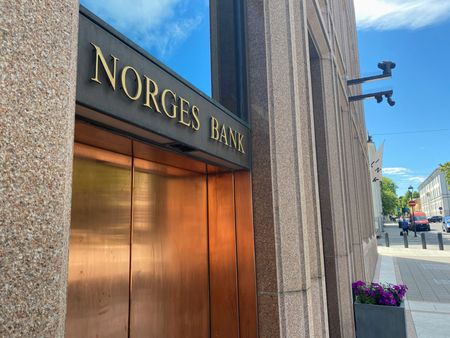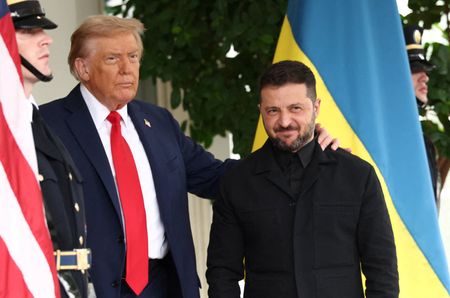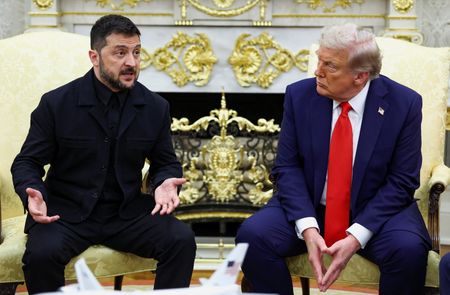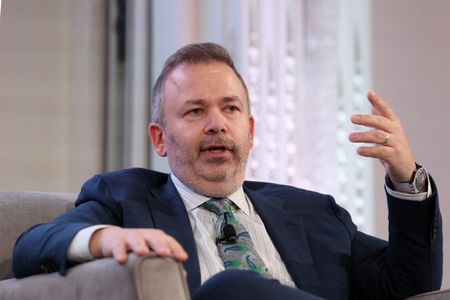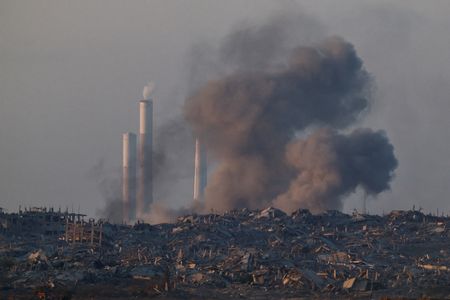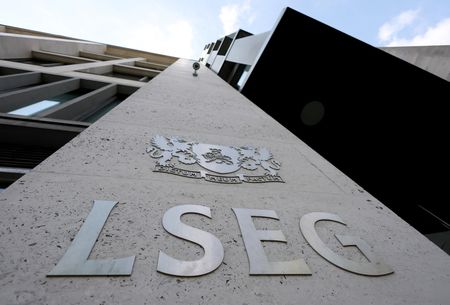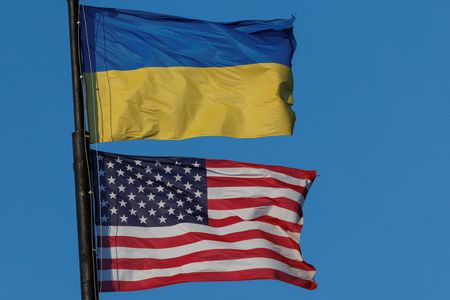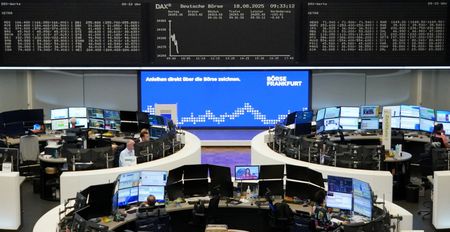By Gwladys Fouche and Louise Rasmussen
OSLO/COPENHAGEN (Reuters) -Norway’s sovereign wealth fund, the world’s largest, will exclude another six Israeli companies with connections to the West Bank and Gaza from its portfolio following an ethics review, it said on Monday.
The $2 trillion wealth fund did not name the companies it had decided to exclude but said they would be made public, along with specific reasons, once the divestments were completed.
One possibility is they include Israel’s five largest banks, which have been under review by the fund’s ethical watchdog.
Separately, the fund said it had also sold stakes in six other companies following a decision last week to only hold stakes in Israeli companies that are part of the fund’s benchmark index.
As of August 14, the fund had 19 billion crowns ($1.86 billion) invested in 38 companies listed in Israel, the fund’s operator Norges Bank Investment Management said, a reduction of 23 companies since June 30.
“More companies could be excluded,” Norwegian Finance Minister Jens Stoltenberg told reporters.
ETHICS REVIEW
The fund launched an urgent review earlier this month after reports that it had built a stake in an Israeli jet engine group that provides services to Israel’s armed forces, including the maintenance of fighter jets.
The reports spurred a fresh debate about the fund’s investments in Israel and the occupied Palestinian territories ahead of elections on Sept. 8, with some parties calling for the fund to divest from all Israeli companies, a step the government has ruled out.
Norway’s parliament in June rejected a proposal for the fund to divest from all companies with activities in the occupied Palestinian territories.
“This debate helps sharpen our practices,” said Stoltenberg.
Critics say only a complete withdrawal from investing in Israeli companies would protect the fund against possible ethical breaches.
Stoltenberg said that, from now on, the ethics watchdog and NBIM would have more frequent and faster exchanges of information to more rapidly identify problematic companies.
Ethical exclusions from the fund are based on recommendations from the fund’s watchdog, though NBIM can also divest from companies if it assesses that a company poses too much of a risk to the fund, whether the risk is ethical or not.
“With more exchanges of information between the Council on Ethics and Norges Bank, it is possible that there could be more divestments of that kind in future,” said Stoltenberg.
Last Monday, the fund announced it was terminating contracts with all three external asset managers who handled some of its Israeli investments.
($1 = 10.1890 Norwegian crowns)
(Reporting by Gwladys Fouche in Oslo and Louise Breusch Rasmussen in Copenhagen, editing by Terje Solsvik, William Maclean and Christina Fincher)

